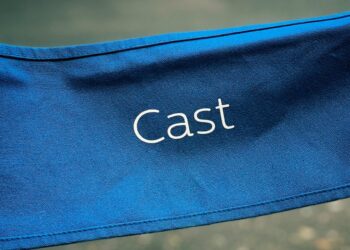Tax season shouldn’t be the first time you think about your tax deductions. Every receipt you toss could be money back in your pocket. And, don’t just toss them in a shoe box and think that you’re doing something good. A licensed accountant told me that they don’t want to see that either. Whether you earned $1,000 or $100,000 this year, these five deductions can significantly reduce your tax burden. But, you might only save this money if you track them properly and you start right now.
1. Training and Education
Every class, or workshop, a coaching session, and a masterclass is deductible when it maintains or improves your skills for your current profession. This will include:
– Acting classes and private coaching
– Voice and dialect lessons
– Dance and movement training
– Online courses (a MasterClass, a skill-specific training)
– Industry seminars and casting director workshops
Quick tip: Screenshot your online course receipts immediately. Keep them as documentation. Often, email receipts will get buried and/or deleted. Print your receipts and put them in a folder of keep them digitally in a separate folder, again, as documentation.
2. Marketing Materials and Headshots
Your image is your product that you are selling. Maintaining your image is a business expense. Track all of the costs that you spend on:
– Your Headshot photography sessions,
– Printing and reproduction of your acting materials,
– Your Website hosting and domain fees,
– Your Business cards,
– Any Actor profile platform subscription fees (Backstage, Casting Networks, Actor’s Access), and
– Your Demo reel editing and production costs.
Save this: Even that $6.99 monthly Canva subscription for self-tape thumbnails counts here.
3. Travel and Transportation
Auditions do not happen in your living room. Get out of the house. Deduct your transportation costs. This includes:
– Mileage to and auditions, and callbacks, and visits to filming locations (currently approximately 65.5¢ per mile),
– Parking fees and tolls,
– Uber/Lyft to any auditions (when driving isn’t practical), and
– Out-of-town travel for booked work (For example: flights, hotels, meals).
A Critical Note: Commuting to your survival job does not count here. Use a mileage tracking app like MileIQ, and there are some other ones, to track only your entertainment industry related travel.
4. Supplies and Equipment
Every tool that you use for your self-tapes and performances is also deductible:
– Ring lights and lighting equipment,
– Backdrops and stands,
– External hard drives for storing footage,
– Makeup and specific wardrobe required for roles,
– Props purchased for self-tapes, and also
– Phone tripods and clips.
Do not forget: That blue backdrop you bought for your Zoom auditions during COVID? It is still deductible. Still document it.
5. Your Research and Your Preparation
Staying current with the industry is also a business requirement:
– Movie tickets (for studying performances),
– Streaming subscriptions used for research,
– Script databases and side services,
– Industry publications (like Variety and the Hollywood Reporter),
– Union dues and professional organization fees, and also
– Play tickets for your professional development.
The key: You should write the category on your receipt. For instance, “RESEARCH: [specific project or reason]” on receipts to justify their business purpose.
Do This Now Because You Can Start This Today. Then, Thank Yourself in April
Create a simple system now: You might use a dedicated credit card for only business expenses. You might keep a photograph every receipt with a phone app like Expensify, or maintain them in a basic spreadsheet. The average actor will reportedly misses approximately $2,000-4,000 in deductions this year simply from their poor record-keeping behaviors.
Remember: You are supposed to be running a business. Act like it. Do not just hope for a career to happen to you. Track your expenses like a CEO. Do this now no matter even if you’re currently earning like a voluntary intern. This is still something that you can do now, no matter your level in this industry. These deductions apply whether you file as self-employed or you have real, substantial W-2 income from legit acting work.
* Disclaimer: This is just general business information. This is NOT tax advice. And, this is NOT Your Tax Advice. You should consult with a tax professional who is familiar with entertainment industry taxes about your specific situation. *


















